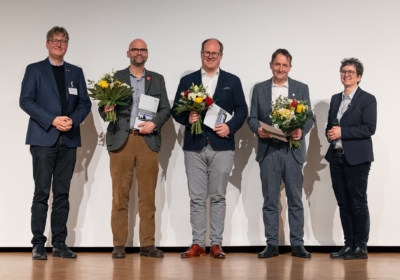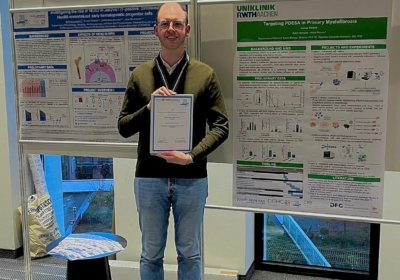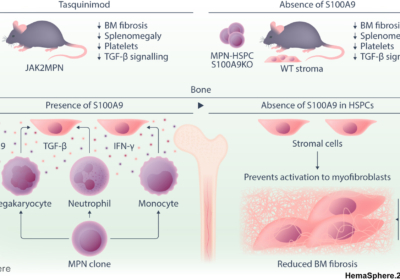Univ.-Prof. Dr. Thomas Clavel, Professor am Institut für Medizinische Mikrobiologie an der Uniklinik RWTH Aachen, konnte in Zusammenarbeit mit Kolleginnen und Kollegen den Fachartikel „Enabling next-generation anaerobic cultivation through biotechnology to advance functional microbiome research“ in der renommierten Fachzeitschrift Nature Biotechnology platzieren. Der Beitrag erscheint am 29. April 2025.
Anaerobe Mikroorganismen sind zentrale Akteure in humanen Mikrobiomen, etwa im Darm, und beeinflussen Gesundheit, Immunmodulation und Krankheitsverläufe. Obwohl Sequenzierungstechnologien umfassende Einblicke in mikrobielle Zusammensetzung liefern, bleibt die funktionelle Interpretation bisweilen noch begrenzt. Daher gewinnt auch die gezielte Kultivierung anaerober Bakterien wieder an Bedeutung, denn diese ermöglicht die Erforschung spezifischer Stoffwechselwege, mikrobieller Interaktionen und potenzieller therapeutischer Targets – etwa bei Dysbiosen, Infektionen oder im Rahmen mikrobiomgestützter Therapien. Fortschritte in neuartigen anaeroben Kultivierungsansätzen können die funktionelle Mikrobiomforschung revolutionieren – mit direktem Nutzen für Diagnostik und Therapie.
Die Publikation festigt die Position der Uniklinik RWTH Aachen als eine der weltweit führenden Institutionen für medizinische Forschung und Innovation.
Univ.-Prof. Dr. Thomas Clavel, Professor at the Institute of Medical Microbiology at Uniklinik RWTH Aachen, and colleagues publish an article ‘Enabling next-generation anaerobic cultivation through biotechnology to advance functional microbiome research’ in the renowned journal Nature Biotechnology. The article will be published on 29 April 2025.
Anaerobic microorganisms are central to the human microbiome, for instance in the gut, and influence health, but also the development of several chronic diseases. Although sequencing technologies have provided comprehensive insights into microbial composition, functional interpretation is still limited. For this reason, the cultivation of anaerobic bacteria is becoming increasingly important again, as it enables research into specific metabolic pathways, microbial and host-microbe interactions and potential therapeutic targets. Innovative anaerobic cultivation approaches can revolutionise functional microbiome research – with direct benefits for diagnostics (biomarkers discovery) and therapy (live biotherapeutics).
The publication strengthens the position of the Uniklinik RWTH Aachen as one of the world’s leading institutions for medical research and innovation.






